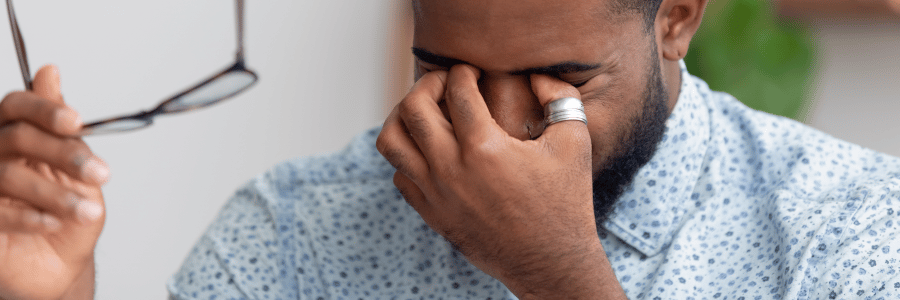Are Your Eyesight Changes More Than Old Age?
December 2, 2022
As we age, most of us experience vision changes.
- It can get harder to see things up close.
- Sometimes it’s challenging to distinguish colors, like black from blue.
- Our eyes often need more time to adjust to different light levels.
Most of these problems are easily corrected with glasses, contact lenses, or improved lighting around the house.
But the risk of more serious eye diseases and conditions increases with age. That’s why it’s even more important to protect your vision as you age. Here are some simple things you can do:
- Get your eyes checked regularly. The National Eye Institute recommends eye exams at least every two years if you are over 60, an African American over 40, or have a history of glaucoma. If you have diabetes, you should get an exam annually.
- Make a list of changes in your eyesight and discuss them with your ophthalmologist or doctor. Normal changes generally do not harm your vision, but some issues may be symptoms of more severe problems. For example, if your eyes leak tears, they may have developed a sensitivity to wind or temperature changes. It could be a sign of an infection.
- If you wear glasses or contact lenses, get your vision prescription checked regularly. Small changes in your eyesight can increase your risk for falls and injuries. It’s important to make sure your prescriptions are up to date.
Get a Dilated Eye Exam
A dilated exam allows an eye care professional to look inside your eye. It’s the only way to diagnose some eye diseases while they’re easier to treat and before they harm your vision.
This painless exam involves putting drops in your eyes to widen or dilate your pupils. Your vision may be blurry after the exam, and your eyes may be more sensitive to light. The effect only lasts a few hours. But you should arrange for someone to drive you home.
The NEI recommends everyone over age 50 get a dilated eye exam regularly, even if you have good vision and don’t wear contacts or glasses. The NEI also suggests that people with diabetes or high blood pressure get a dilated exam at least once a year.
Tips to Keep Your Eyes Healthy
There are other things you can do to keep your eyes healthy at any age:
- Protect them from sunlight by wearing sunglasses that block ultraviolet radiation and a wide-brim hat when you are outdoors.
- Stop smoking. Smoking increases the risk of developing eye disease.
- Eat better. Foods like kale, sweet potatoes, strawberries, and foods rich in Omega-3s promote eye health.
- Get active and maintain a healthy weight. Studies have found that exercise can protect you against eye damage.
- Check your blood pressure. High blood pressure can damage blood vessels in the eyes.
- If you have diabetes, be committed to managing it. Controlling your diabetes can prevent diabetic retinopathy, which occurs when high blood sugar damages blood vessels in the retina, causing blurry vision or stopping blood flow.
- If you spend a lot of time at the computer, take a break every 20 minutes to look about 20 feet away for 20 seconds to prevent eye strain.
Get the Care You Need
If you’re worried about your vision, talk to your eye doctor or ophthalmologist. If you do not have an eye professional, Grady can help. Book your appointment online at gradyhealth.org, use MyChart, or call (404) 616-1000. We’ll arrange an appointment at one of our neighborhood centers. Doctors there can treat most conditions and provide access to Grady’s unparalleled medical specialty expertise.

Advertisement

